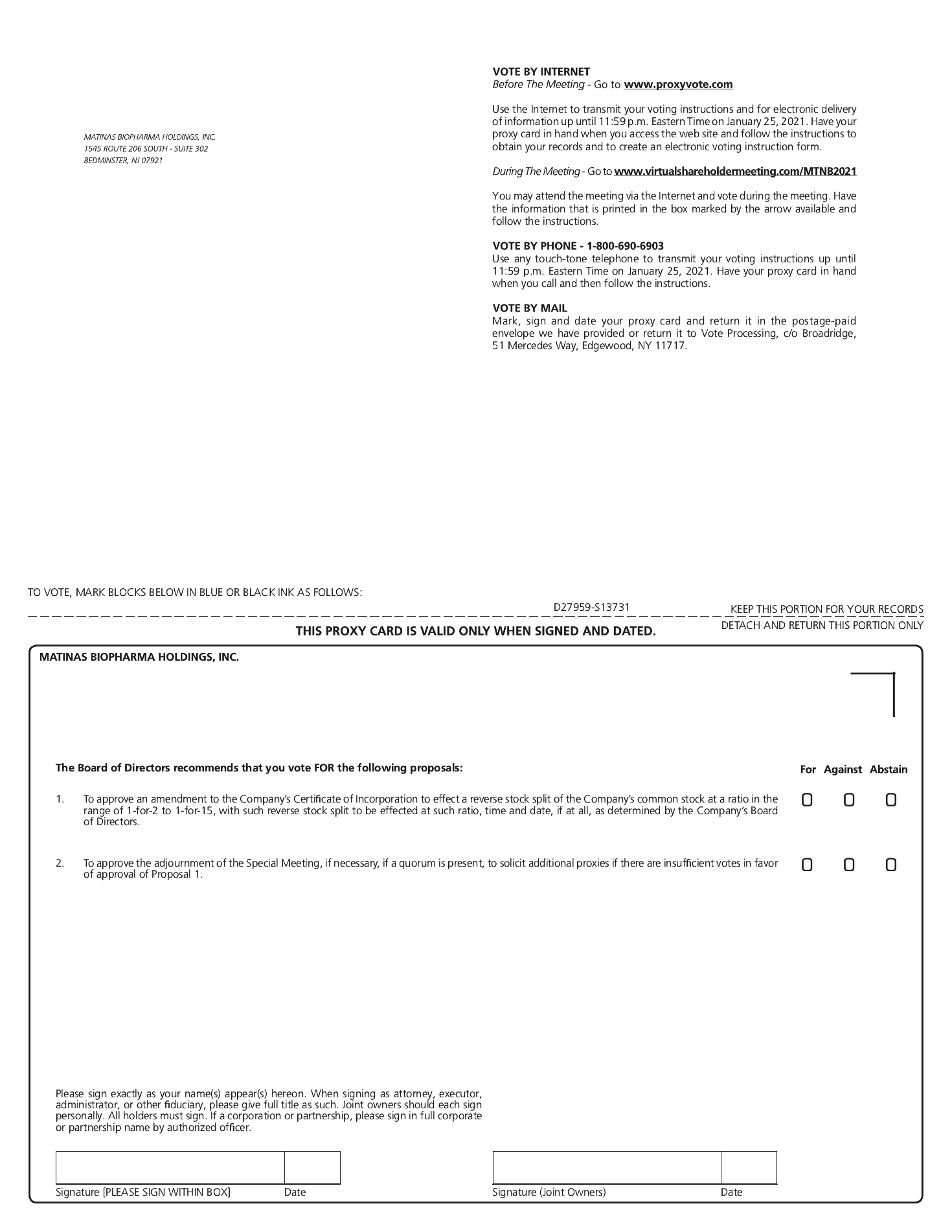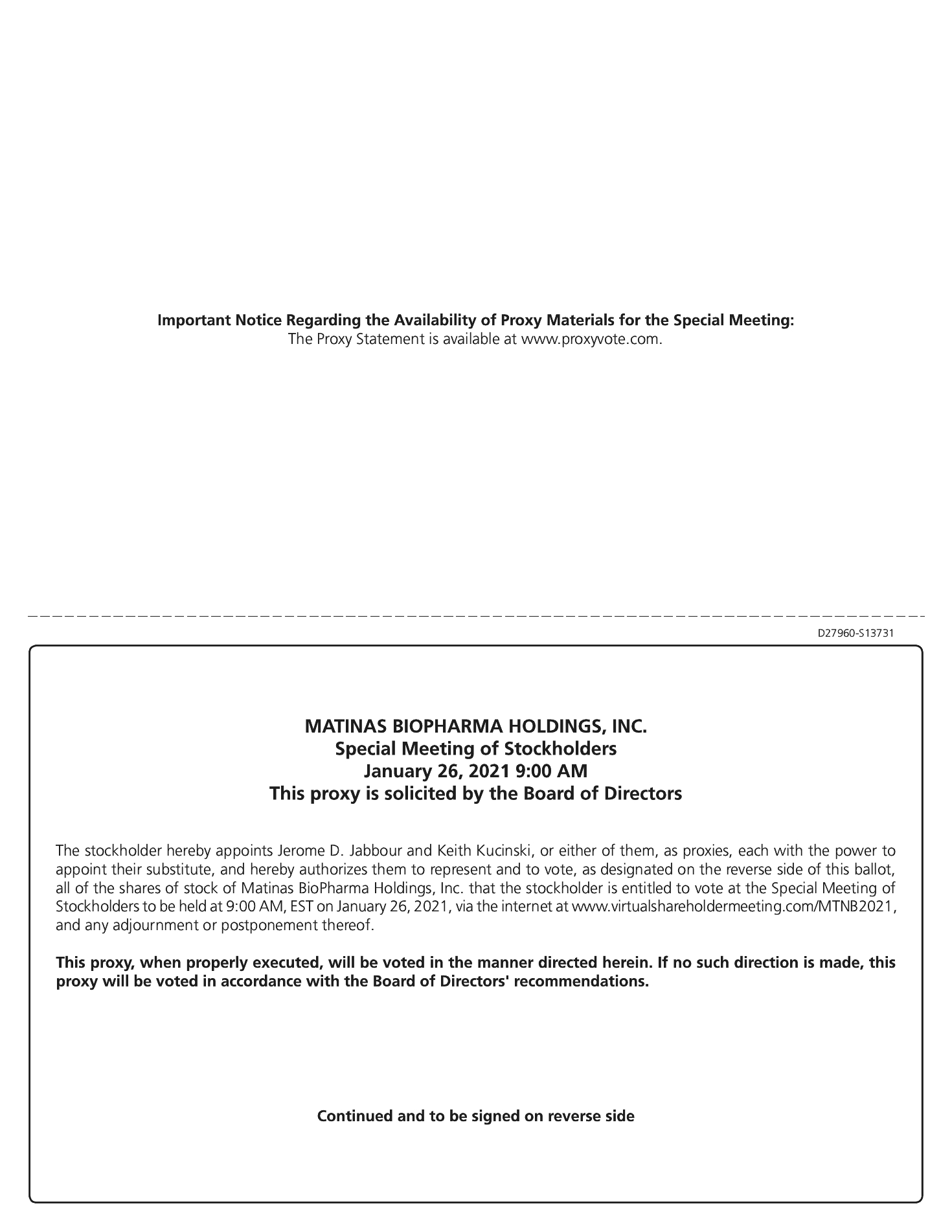found on your proxy card, notice of internet availability or other proxy materials. If you do not have a control number, please contact the brokerage firm, bank, dealer, or other similar organization that holds your account as soon as possible so that you can be provided with a control number. The Special Meeting will begin promptly at 9:00 a.m. local time. We encourage you to access the Special Meeting before it begins. Online check-in will start 15 minutes before the meeting on January 26, 2021. If you encounter any difficulties accessing the virtual meeting during the check-in or meeting time, please call the technical support number that will be posted on the virtual Special Meeting log-in page.
What constitutes a quorum?
The presence at the Special Meeting, virtually or by proxy, of the holders of a majority of our common stock outstanding on the record date will constitute a quorum for our meeting. Signed proxies received but not voted and broker non-votes will be included in the calculation of the number of shares considered to be present at the meeting.
How do I vote?
You can vote on matters that come before the Special Meeting by completing, dating and signing the enclosed proxy card and returning it in the enclosed postage-paid envelope.
Your shares will be voted as you indicate on your proxy card. If you vote the enclosed proxy but you do not indicate your voting preferences, and with respect to any other matter that properly comes before the meeting, the individuals named on the proxy card will vote your shares FOR the matters submitted at the meeting, or if no recommendation is given, in their own discretion.
If you are a stockholder of record, to submit your proxy by telephone or via the Internet, follow the instructions on the proxy card. If you hold your shares in street name, you may vote by telephone or via the Internet as instructed by your broker, bank or other nominee.
If you are a stockholder of record, virtually attend the Special Meeting and prefer to vote online at the Special Meeting, you may do so even if you have already voted your shares by proxy. If you hold shares in “street name,” however, you must provide a legal proxy executed by your broker or other nominee in order to vote your shares at the Special Meeting.
What if I vote and then change my mind?
You may revoke your proxy at any time before it is exercised by:
• | filing with our Secretary of a notice of revocation; |
• | sending in another duly executed proxy by telephone, internet or mail bearing a later date; or |
• | attending the meeting virtually and casting your vote online. |
Your latest vote will be the vote that is counted.
What is the difference between holding shares as a stockholder of record and as a beneficial owner?
Many of our stockholders hold their shares through a stockbroker, bank or other nominee rather than directly in their own name. As summarized below, there are some distinctions between shares held of record and those owned beneficially.
Stockholder of Record
If your shares are registered directly in your name with our transfer agent, VStock Transfer, LLC, you are considered, with respect to those shares, the stockholder of record. As the stockholder of record, you have the right to grant your voting proxy directly to us or to vote virtually at the Special Meeting.
Beneficial Owner
If your shares are held in a stock brokerage account or by a bank or other nominee, you are considered the beneficial owner of shares held in street name, and these proxy materials are being forwarded to you by your broker, bank or nominee which is considered, with respect to those shares, the stockholder of record. As the beneficial owner,


